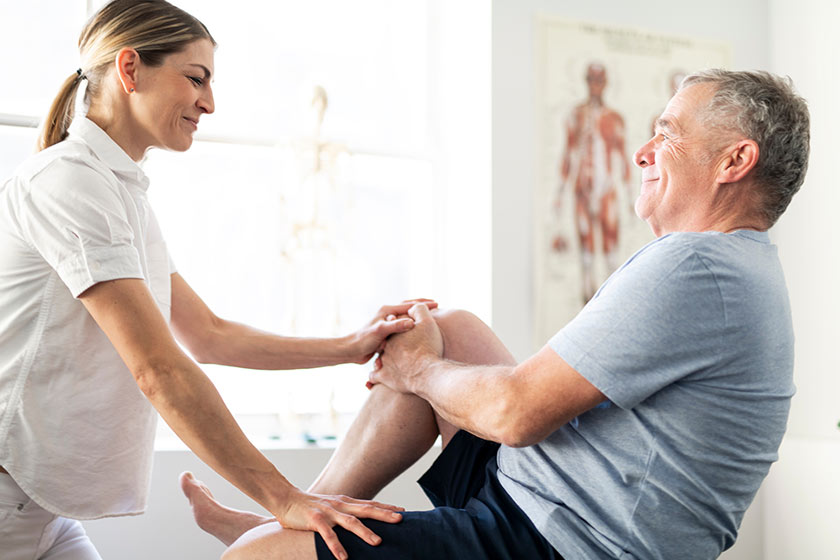Knee replacement recovery tips for our loved ones may sound like an oxymoron. Still, it isn’t! Knee replacements are necessary for people with severe knee arthritic pain that makes walking impossible. While most people see knee replacements as problems they have to deal with as they get old, they’re surprisingly quite common among many of us—and even more common among the elderly population if they’re overweight or obese.
Over 875,000 knee replacements are performed each year in the U.S., more than any other joint procedure. Knee replacement is a treatment that is used to relieve pain and restore function in people with damaged knees. A healthy lifestyle can go a long way to reduce knee pain for many years before a person needs to consider surgery. Still, there’s no way to reverse the damage already done to the cartilage or avoid future cartilage degeneration that comes with aging. When it does come time for a knee replacement, though, not all patients get relief from their symptoms—and if a patient isn’t a good candidate for a knee replacement, they might need to consider alternative therapy options such as injections or physical therapy.
Some knee replacement recovery tips can help you make sure you recover well after surgery, whatever your age or situation may be!
Seek Support from a Physiotherapist
Physiotherapists are specially trained to help loved ones recover from knee replacement surgery. They are masters of rehabilitation, and they can help you stay on track with your post-operative plan. If you’re getting a knee replacement, here are some steps to ensure a successful recovery:
- Keep your surgeon informed of your progress.
- Ask questions about your care.
- Listen to instructions.
- Exercise according to schedule.
- Eat healthy meals.
- Get adequate sleep each night.
Be Patient
Many individuals struggle with patience while recovering from a knee replacement. If you’re one of them, remember that waiting too long to have surgery can lead to additional damage to your joint, thus requiring a longer recovery time. Also, after surgery, your new knee will need time to adjust and heal properly; be patient, and give it time to get stronger before pushing it too hard. Therefore, whether you’re recovering from a total knee replacement or partial knee replacement (patellofemoral), you need to be patient.
Perform Light Exercises
One of the most important ways to ensure a successful knee replacement recovery is to avoid immobility and get back into exercising as soon as possible. Depending on your activity level, you should start with light exercises such as swimming, bicycling, or simply walking around during your first few weeks after surgery. Exercise doesn’t just help you build muscle mass and burn calories; it also helps speed up your overall recovery process. Suppose you follow a consistent rehabilitation routine to restore strength, flexibility, and balance for a total knee replacement recovery, in that case, chances are better that you’ll make a total return to everyday life.







